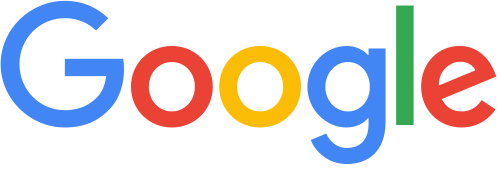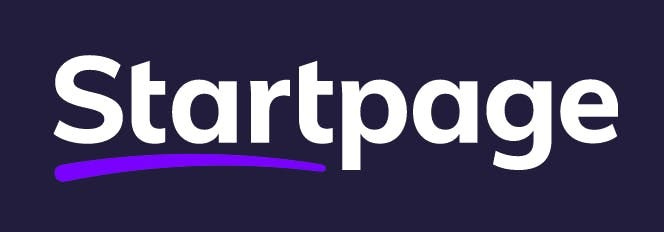Introduction:
On August 6, 2024, a seismic shift occurred in the tech world. Google, the behemoth of the online search market, was officially declared to hold an illegal monopoly, commanding a staggering 90% market share. This ruling didn’t just target Google’s dominance; it exposed the colossal $26 billion war chest the company used to maintain its grip, securing deals to be the default search engine on major platforms like Mozilla Firefox and Apple’s Safari, and locking in partnerships with OEMs and wireless carriers across the U.S. But what does this landmark decision mean for the future of Big Tech and the open web?

Google: The Titan of Search
Google was founded in 1998 by Larry Page and Sergey Brin, started as a revolutionary search engine with a mission to “organize the world’s information and make it universally accessible and useful.” What began as a university project quickly became the most powerful tool on the internet, outpacing its competitors and evolving into a tech giant. Google’s influence now extends far beyond search, encompassing digital advertising, cloud computing, mobile operating systems, and more. However, its dominance in the search market, where it holds an overwhelming share, has raised concerns about fair competition and the company’s methods of maintaining its leading position.
Mozilla: The Defender of the Open Web
In contrast, Mozilla was born out of a different vision. Established in 1998 by members of the Netscape team, Mozilla aimed to promote openness, innovation, and participation on the internet. When the code of Netscape Navigator was open-sourced, Mozilla forked it to create Firefox. As a non-profit organization, Mozilla has been a fierce advocate for user rights and privacy, developing several tools like the Firefox browser, the Gecko browser engine, the Bugzilla Bug reporting System, the Firefox OS (which was then forked into KaiOS, a wildly popular OS for developing markets), and financially supporting a bunch of projects that prioritize user choice over corporate interests. Despite its smaller market share compared to Google’s Chrome, Firefox and Mozilla remain crucial players in maintaining a diverxse and open web. However, Mozilla’s reliance on Google for funding has increasingly put it in a precarious position, especially now that Google’s monopoly has been legally challenged.
Startpage: Privacy’s Last Stronghold
Startpage, a lesser-known but equally important player, is a Netherlands-based search engine that has championed privacy since its inception in 2006. Unlike Google, which tracks user data to deliver targeted ads, Startpage offers a privacy-first experience, acting as a proxy that delivers Google search results without collecting personal data. For many users, Startpage is the go-to choice for accessing Google’s search capabilities without sacrificing privacy. However, its dependence on Google for search results has always been a double-edged sword, and the recent antitrust ruling could sever this crucial link, potentially diminishing the quality of Startpage’s service and leaving privacy-conscious users with fewer options.
The Domino Effect on Big Tech
This ruling against Google is more than a legal setback; it’s a potential unraveling of Big Tech’s ironclad control over the digital realm. With Google now vulnerable to lawsuits from publishers and facing a possible breakup of its parent company, Alphabet, the victory for the U.S. Department of Justice (DoJ) and the Federal Trade Commission (FTC) could embolden further actions against other tech giants. This action might actually pave the way for breaking up Alphabet into several different companies, much like how Standard Oil was broken up over 110 years ago.
Apple, with its tight grip on the Apple Ecosystem, mandates that all apps on its devices be downloaded exclusively from its App Store, effectively limiting user freedom.
Microsoft, meanwhile, has been quietly building an AI empire, investing in startups and companies like OpenAI, Inflection, G42 (a UAE-based AI Company), Anthropic, and in its own in-house cloud computing infrastructure as well as AI team.
Amazon faces accusations of inflating prices and exploiting smaller sellers.
Meta, isn’t safe either — its acquisitions of WhatsApp and Instagram are under scrutiny for stifling competition.
The dominoes are lined up; the question is, who falls next?
Mozilla’s Moment of Truth:
In the crosshairs of this antitrust fallout lies Mozilla, the non-profit champion of the open web. Mozilla has stood as a bastion of digital freedom, supporting crucial tools like the Firefox browser and the Gecko browser engine. However, its financial lifeline — nearly half a billion dollars annually from Google to remain Firefox’s default search engine — is now in jeopardy.


Google’s payments constitute nearly 90% of Mozilla’s funding, a dependency that has become increasingly precarious as Google’s monopoly was solidified. Mozilla’s attempts to diversify its revenue streams, such as launching Firefox Extended Support Release Versions to Enterprises and the Mozilla VPN, have been admirable but insufficient to offset its reliance on Google. With the antitrust ruling, the lifeline could be cut, threatening not just Mozilla, but the very existence of the open web. The Gecko Engine is the last major browser engine not under corporate control, a stark contrast to Google’s Blink and Apple’s Webkit (which risks becoming ‘the new Internet Explorer’ for holding back newer web technologies). If Mozilla falls, the open web could fall with it.
The Dilemma for Startpage:
Startpage, the privacy-focused meta-search engine, is another casualty in waiting. It was founded on the principle of ‘Privacy first’. Offering users Google search results without the data tracking, Startpage has been a vital tool for privacy-conscious internet users. But with Google’s legal troubles mounting, the tech giant may no longer see any benefit in supporting competitors like Startpage, which relies on Google to deliver its core service. It did start diversifying its search results from 2023 onwards, however this is only for certain specialized services. The potential decline in search quality for Startpage users could drive them away, marking a significant loss for those who prioritize privacy.

Conclusion:
Google’s monopolistic practices have finally come to light, but the antitrust ruling that aims to curb its power may inadvertently harm those it intended to protect. Mozilla and Startpage, found their respective deals with Google, to be beneficial. However,this relationship turned extremely toxic for Mozilla. Having its biggest and most ruthless competitor as the source of 85% of Mozilla’s revenue is nothing short of a disaster in waiting. Should Mozilla have attempted to pivot away to other revenue sources much earlier when it had nearly 28% of the market share? Yes Similarly, should Startpage have attempted to diversify its partners for search results much earlier, or build its own search index? Again, a resounding yes. Both Mozilla and Startpage now run the risk of being collateral damage. Mozilla, in particular, faces an existential threat that could signal the end of the open web as we know it. Even if some other Search Engine comes up and offers Mozilla similar amounts of royalties to become Firefox’s default search engine, history is witness to the fact that it might just continue to hemorrhage market share. In 2014, Mozilla signed a deal with Yahoo to become the default search engine. While it only takes a few clicks to change the default search engine, many Firefox users just replaced the browser with Google’s Chrome. Firefox witnessed a decline from 11% market share in December 2014 (the beginning of the deal) to 5.7% in a span of 3 years. What this does mean is that any attempt to change its default search engine might cost Firefox dearly. It stands at a market share of 3.1% today and cannot risk losing any more users. The tech landscape is on the brink of dramatic change, and as the dust settles, the very foundations of the internet may be reshaped. The solution to this problem that Mozilla faces is not at all simple. This ruling on Google opens the doors for so many things for the Open Web to go wrong, that it is not even funny. As Cassandra Clare aptly put it, “Even the Devil was once an Angel.”



